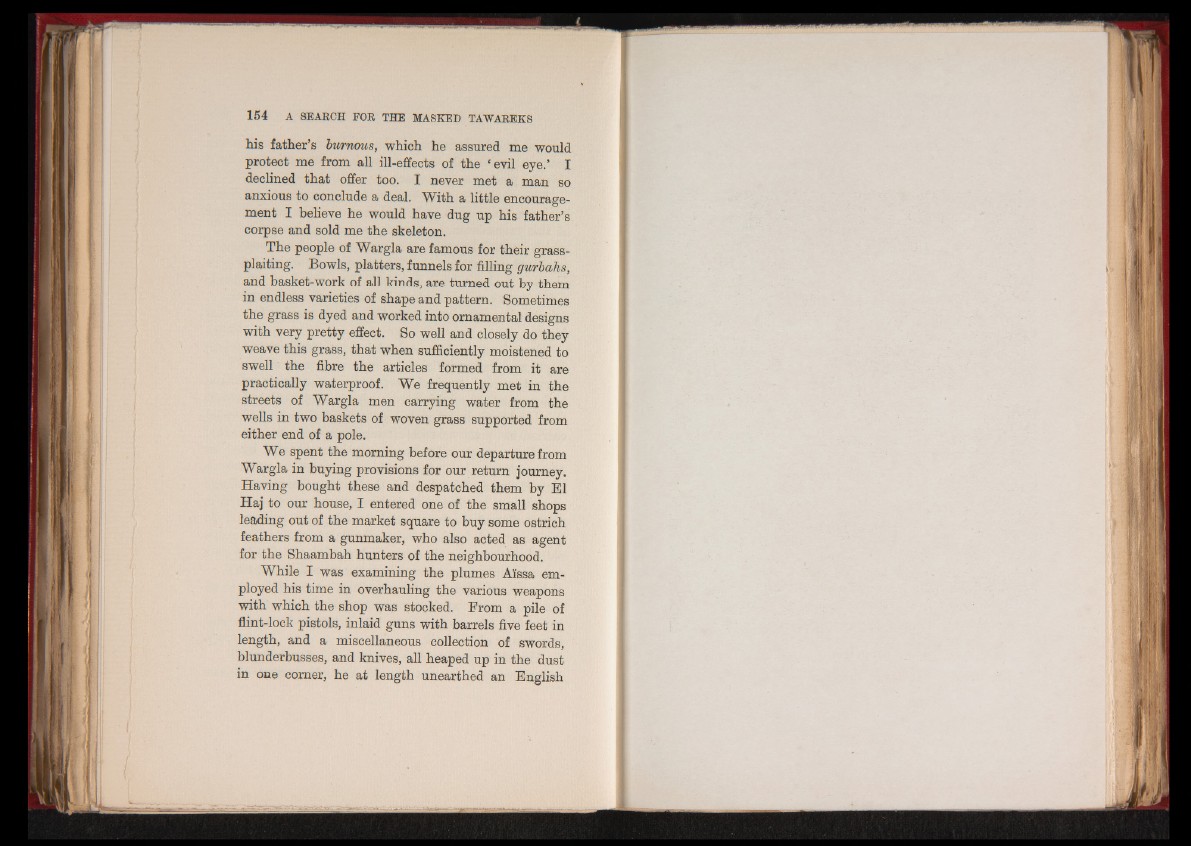
his father’s burnous, which he assured me would
protect me from all ill-effects of the ‘evil eye.’ I
declined that offer too. I never met a man so
anxious to conclude a deal. With a little encouragement
I believe he would have dug up his father’s
corpse and sold me the skeleton.
The people of Wargla are famous for their grass-
plaiting. Bowls, platters, funnels for filling gurbahs,
and basket-work of all kinds, are turned out by them
in endless varieties of shape and pattern. Sometimes
the grass is dyed and worked into ornamental designs
with very pretty effect. So well and closely do they
weave this grass, that when sufficiently moistened to
swell the fibre the articles formed from it are
practically waterproof. We frequently met in the
streets of Wargla men carrying water from the
wells in two baskets of woven grass supported from
either end of a pole.
We spent the morning before our departure from
Wargla in buying provisions for our return journey.
Having bought these and despatched them by El
Haj to our house, I entered one of the small shops
leading out of the market square to buy some ostrich
feathers from a gunmaker, who also acted as agent
for the Shaambah hunters of the neighbourhood.
While I was examining the plumes Aissa employed
his time in overhauling the various weapons
with which the shop was stocked. From a pile of
flint-lock pistols, inlaid guns with barrels five feet in
length, and a miscellaneous collection of swords,
blunderbusses, and knives, all heaped up in the dust
in one comer, he at length unearthed an English
Mill
11
I
IE } ;'»
IS